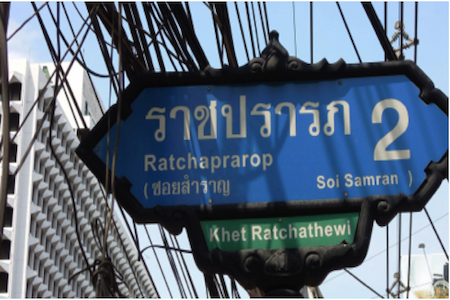Article
Different Language Versions of Urticaria Control Test Lost Nothing in Translation
Author(s):
A novel cross-cultural adaptation of the Urticaria Control Test (UCT) for clinical applications in Thailand proved every bit as effective as its German predecessor.

In research from Bangkok’s Mahidol University, a novel cross-cultural adaptation of the Urticaria Control Test (UCT) for clinical applications in Thailand proved every bit as effective as its German predecessor. In the course of this investigation, the patient-reported assessment’s sensitivity to change and minimal clinically important difference (MCID) were systemically evaluated for the first time.
Kanokvalai Kulthanan and colleagues at Mahidol University and Allergie Centrum Charite in Berlin described a structured translation process bolstered by pre-testing ultimately validated by clinical comparison with 169 CU patients.
Their research showed a strong correlation between the Thai UCT scores and disease activity across both the long and short form of the test.
The eight-question “long” form and the four question “short” form UCT were translated independently by two native Thai speakers with German fluency and later reviewed by dermatologists trained in allergies. The results in Thai were then back translated to German, and compared with the original by its authors.
After reconciling any inconsistencies through conversation between the researchers and the original UCT authors, the Thai version UCT was tested in 10 CU patients prior to its introduction to the test subjects.
For the study, 168 CU patients recruited from the University’s Allergy Clinic were assessed using five clinical measures: the validated Thai versions of UCT, Chronic Urticaria Quality of Life Questionnaire (CU-Q2oL), Urticaria Activity Score (UAS28), Patient’s global assessment of disease severity (PatGA-VAS), and the patient’s global assessment of disease control (PatGA-LS)
According to the authors, statistical analysis of the resulting data for validity, reliability, screening accuracy, and MCID, showed “strong correlations between the Thai UCT score and disease activity, health-related quality of life impairment, and disease control”.
The research paper, "Validity, reliability and interpretability of the Thai version of the urticaria control test (UCT)" was published in Health and Quality of Life Outcomes.
Related Coverage:
Data Analyses Show Major Strides in Blood Biomarkers for Chronic Spontaneous Urticaria
Literature Review of Aquagenic Urticaria: How One Becomes “Allergic to Water”
Carol Burnett's "Mama" Opens Up About Chronic Idiopathic Urticaria





